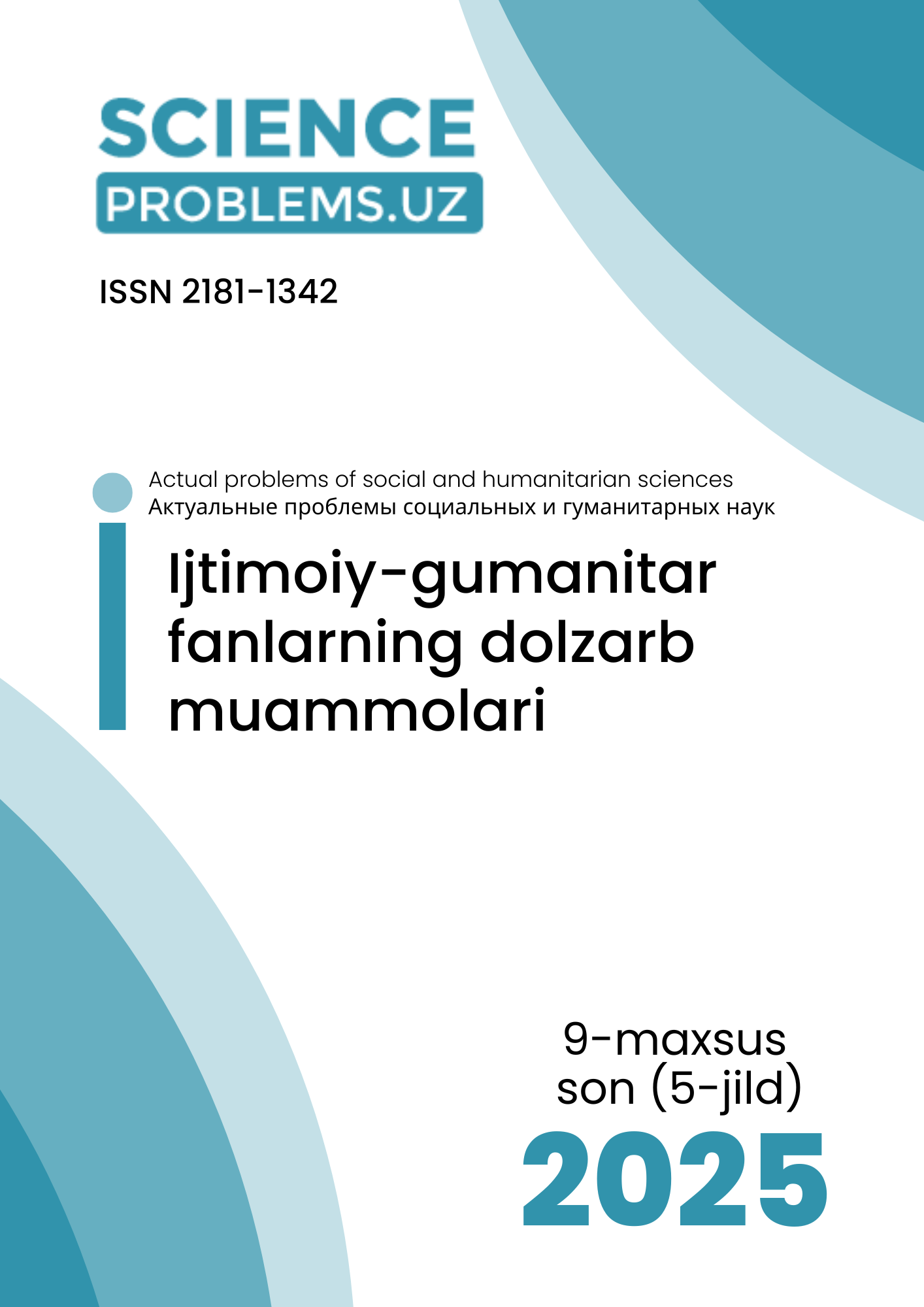PRINCIPLES OF FORMING THE CREATIVE COMPETENCIES OF FUTURE PRESCHOOL EDUCATION TEACHERS THROUGH AN INNOVATIVE APPROACH
DOI:
https://doi.org/10.47390/SPR1342V5SI9Y2025N86Keywords:
creative competence, innovative approach, preschool education, teacher-pedagogue, creativity, educational technologies, methodology, effectiveness.Abstract
This article analyzes the principles of forming creative competencies of future preschool education teachers through an innovative approach. The relevance of the topic is substantiated by the need for creativity, innovation, and the search for pedagogical solutions in the educational process. The study reveals the essence of creative competence, examines methods and approaches aimed at its development, and highlights the advantages of applying innovative technologies. In addition, the factors of creativity enhancement in teachers’ professional activities and the conditions for achieving effectiveness are scientifically justified. The research results show that the innovative approach plays a crucial role in developing the creative competencies of preschool education teachers.
References
1. Baer J. Creativity doesn’t develop in a vacuum // New Directions for Child and Adolescent Development. – 2015. – №151. – Р. 9–20. DOI: 10.1002/cad.20151.
2. Craft A. Creativity in schools: Tensions and dilemmas. – London: Routledge, 2005. – 208 p.
3. Ibroxim To’Xtaxo’Jaevich Uluxanov, Go’Zal Abdurasulovna Xusayinova, & Solijon Qodirovich Ubaydullaev (2021). O’QUVCHILARNING KREATIV KOMPETENTLIKINI SHAKLLANTIRISH MEZONLARI. Scientific progress, 2 (8), 814-822.
4. Karimova , B. (2024). KREATIV PEDAGOGIKA. Journal of Universal Science Research, 2(5), 598. Retrieved from https://inlibrary.uz/index.php/universal-scientific-research/article/view/34175
5. Nasritdinova Madina Murullayevna, & Turg‘Unoy Axmadjanovna Egamberdiyeva (2024). BO‘LAJAK PEDAGOGLAR BADIIY-IJODIY KOMPETENTLIGINI RIVOJLANTIRISH METODIKASINI TAKOMILLASHTIRISHDA ARTPEDAGOGIKANING O‘RNI VA VAZIFALARI. Eurasian Journal of Academic Research, 4 (5-3), 162-167. doi: 10.5281/zenodo.11475476
6. Kupers E., Lehmann-Wermser A., McPherson G. E., van Geert P. Children’s creativity: A theoretical framework and systematic review // Review of Educational Research. – 2019. – Vol. 89, №1. – P. 93–124. DOI: 10.3102/0034654318815707.
7. Robinson K. Out of our minds: Learning to be creative. – Oxford: Capstone Publishing, 2011. – 326 p.
8. Berikbayev, A. (2025). KOMPETENTSIYA-FAOLIYATIMIZNI MUSTAQIL VA IJODIY AMALGA OSHIRISHDA PSIXOLOGIK TAYYORGARLIK . Universal Xalqaro Ilmiy Jurnal, 2(4.1), 226–229. Retrieved from https://inlibrary.uz/index.php/universaljurnal/article/view/86835
9. Sternberg R. J., Lubart T. I. The concept of creativity: Prospects and paradigms // Sternberg R. J. (Ed.). Handbook of creativity. – Cambridge: Cambridge University Press, 1999. – P. 3–15. DOI: 10.1017/CBO9780511807916.003.
10. Солиев И. С. Мактбача таълим тизимида инновацион ёндашувнинг услубий асослари ва педагогик шарт-шароитлари // Science and Innovation. – 2023. – Т. 2, №5. – С. 14654–14662. DOI: 10.5281/zenodo.7933108.








